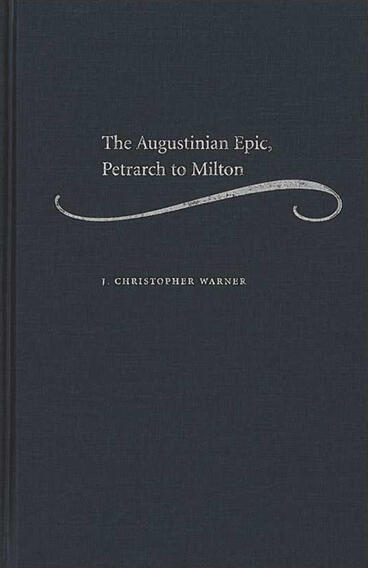The Augustinian Epic, Petrarch to Milton
New interpretations of Petrarch and Milton in an ambitious and revisionist history of epic tradition
Description
The Augustinian Epic, Petrarch to Milton rewrites the history of the Renaissance Vergilian epic by incorporating the neo-Latin side of the story alongside the vernacular one, revealing how epics spoke to each other "across the language gap" and together comprised a single, "Augustinian tradition" of epic poetry. Beginning with Petrarch's Africa, Warner offers major new interpretations of Renaissance epics both famous and forgotten—from Milton's Paradise Lost to a Latin Christiad by his near-contemporary, Alexander Ross—thereby shedding new light on the development of the epic genre. For advanced undergraduate students, graduate students, and scholars in the fields of Italian, English, and Comparative literatures as well as the Classics and the history of religion and literature.
J. Christopher Warner is Associate Professor of English, Le Moyne College and author of Henry VIII's Divorce: Literature and the Politics of the Printing Press.
Reviews
"I can attest that this is a learned, intelligent book, one that blends boldness of vision with the hard textual and bibliographic work on which enduring scholarship rests...In short, this is one of those rare books that really does rewrite literary history, recovering an Augustinian strain that will, I think, become a standard part of the way in which we view the epic tradition between Petrarch and Milton."
- Craig Kallendorf, Texas A&M University
---Renaissance Quarterly
". . . the book's strength lies in the close reading of several largely neglected poems, such as Petrarch, Vida, and Ross, and in its interesting insights on how different poets exploit the Virgilian tradition in an allegorical re-weaving of the Aeneid."
- Antony Augoustakis
---Bryn Mawr Classical Review
"...there is much of value in this book. It is good to see some neglected texts examined, not least the Africa and the two Christiads; the latter in particular are given convincing readings. The book makes us look again at some of the underlying continuities in the genre, and demonstrates the importance of spiritual concerns in many of its central texts. For this we should be grateful."
- Matthew Treherne, University of Leeds
---Matthew Treherne, Modern Language Review

